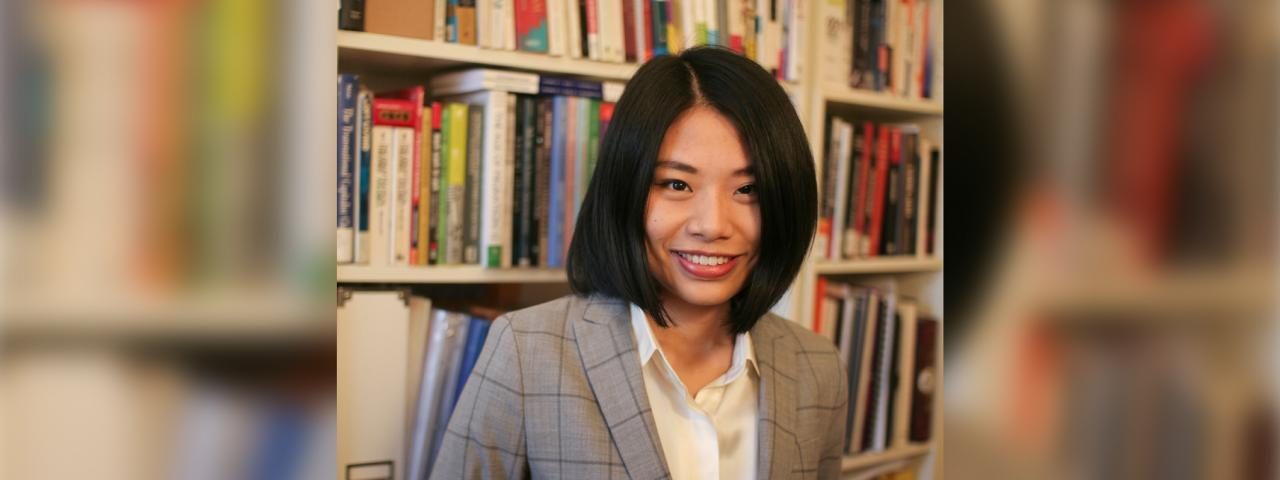Share:
Why do Chinese upper-middle-class families send their teenage children abroad for secondary education? What are the differences and similarities between New York and Shanghai? What is the role of young professionals in urban regeneration in the post-pandemic era? As a postdoctoral fellow in sociology at NYU Shanghai, Tu Siqi’s research explores these questions and the relationship between citizenship, education and migration. After almost a decade of studying and researching abroad, Tu returned to her hometown of Shanghai in 2021 with the aim of incorporating global perspectives into her research on local contexts.
What sparked your interest in sociology?
Since my undergraduate studies, I’ve been passionate about sociology and am committed to an academic career that combines both teaching and research. I want to conduct valuable research on social issues that I find compelling while providing students with sociological perspectives and insights to expand their understanding of the world. My goal is to work in a setting that combines a global perspective with a local understanding.
As a sociologist, I’m driven by a curiosity about society and a desire to understand the essence of societal change. My scholarly interests are focused on issues of global citizenship, elite education, international (im)mobility and migration and political economy of global cities. I am exploring the convergence and divergence of the global and the local when it comes to the mechanisms of inequality in education, migration, and access to urban infrastructure. Through my work, I seek to illuminate the inequalities that exist in the process of mobility, such as those based on nationality, class, and access to resources. Hopefully through empirical research, we as sociologists can inform the development of policies that can address these inequalities and promote a more just and equitable society.
How has your postdoctoral fellow experience been at NYU Shanghai?
Joining NYU Shanghai allowed me to conduct academic research in my birth city and generate fresh ideas, which excited me. As someone with a fascination for universities with global campuses and networks, I was intrigued by NYU Shanghai as a school. I was keen on observing how this Sino-US research university would operate in China and what kind of ecosystem it would create.
After teaching Global Perspectives on Society (GPS) for a year, I met Professor Wu Xiaogang and joined the Center for Applied Social and Economic Research (CASER) he led. The center aligns with my research interests a lot, which allows me to engage in more sociological discussions and complement the center’s expertise in quantitative research with my mixed method and qualitative approach. As a member of the editorial team of Chinese Sociological Review, I have gained valuable insights into the academic production process.
CASER also convenes scholars who are active in various fields, especially many sociologists based in mainland China and Hong Kong, providing me with an opportunity to learn from my peers in China. With Professor Wu’s support, I have the space to conduct my own research and explore potential collaborative projects, such as conducting parallel studies that connect and compare Shanghai and New York. As a sociologist, I am excited to be part of this diverse community and expand my research.
How do you conduct your research and your ongoing projects?
Utilizing qualitative methodology, such as interviews and participant observation, my research explores topics related to transnational migration, immigration, and urban studies. For instance, my doctoral project involved interviewing students and parents about their motivations and aspirations on transnational educational choices and their interaction with study-abroad consultants. To build trust and observe authentic reactions, I would attend activities organized by study-abroad agencies and immerse myself in the environment.
My work seeks to investigate various social topics, including education choices and the notion of global citizenship, children and youth’s transnational mobility, in various contexts. To capture the diversity of individuals’ lived experiences, I work with scholars from all over the globe. For example, I co-edited a book titled Children and Youths’ Transnational Mobility in an Ever-Changing Global Landscape for Sociological Studies of Children and Youth (Emerald Group Publishing, 2022). We intentionally reached out to researchers who study globally mobile children in the Global South across different racial, ethnic backgrounds and of different legal statuses to demonstrate the multidirectional migration of transnational youths and its precarity and uncertainty. I also contributed a book chapter for The Emerald Handbook of Childhood and Youth in Asian Societies: Generations between Local and Global Dynamics, to further center youths’ voices and tell the stories in the context of the Global South.
Currently, I am working on a book project entitled Destination Diploma: How Chinese Upper-Middle Class Families ‘Outsource’ Secondary Education to the United States under contract with Columbia University Press, which is based on my doctoral dissertation. This project explores the experiences of teenage student migrants—the “parachute generation”—who are involved in a transnational intergenerational class-making project through “outsourcing” elite education. The book documents their identity formation, trajectories, and aspirations amid the global uncertainties of geopolitical tensions and an ongoing pandemic. It engages with a triple analytical framework of transnational elite education, the rising global middle class, and the ongoing negotiation of citizenship, membership, and identities across borders.
I am also involved in urban research. I am working on an ongoing project funded by the Shanghai Key Laboratory of Urban Design and Urban Science (LOUD), exploring young professional-led community building and urban regeneration in the post-pandemic city. This study examines the role of young professionals in urban “micro-regeneration” and explores new forms of collaborative community building. It also analyzes power dynamics between stakeholders in shaping public space narratives and examines the right to the city in various local contexts.


